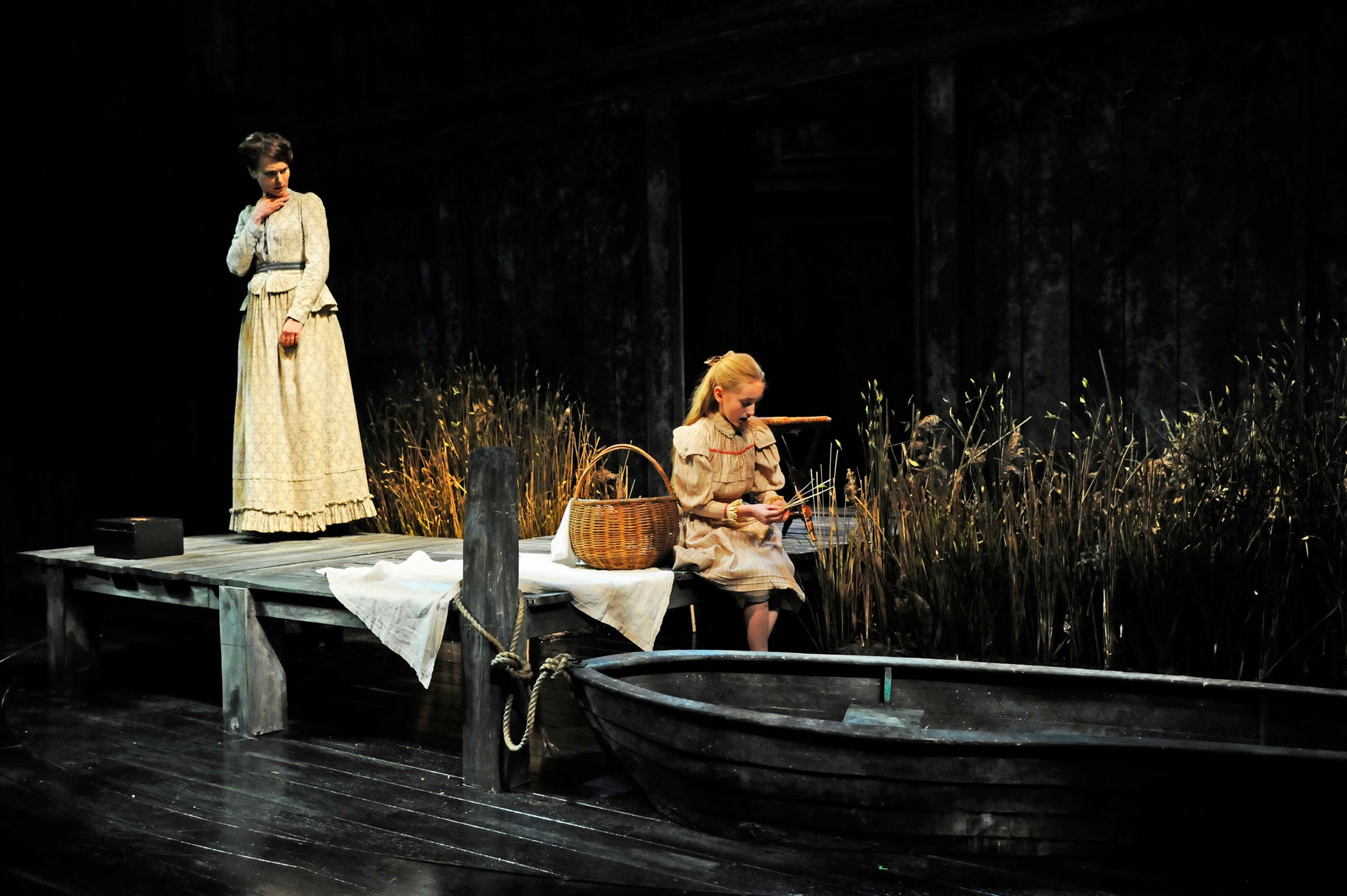
Your support helps us to tell the story
From reproductive rights to climate change to Big Tech, The Independent is on the ground when the story is developing. Whether it's investigating the financials of Elon Musk's pro-Trump PAC or producing our latest documentary, 'The A Word', which shines a light on the American women fighting for reproductive rights, we know how important it is to parse out the facts from the messaging.
At such a critical moment in US history, we need reporters on the ground. Your donation allows us to keep sending journalists to speak to both sides of the story.
The Independent is trusted by Americans across the entire political spectrum. And unlike many other quality news outlets, we choose not to lock Americans out of our reporting and analysis with paywalls. We believe quality journalism should be available to everyone, paid for by those who can afford it.
Your support makes all the difference.Henry James's story has spawned some persuasive and genuinely disturbing adaptations – foremost amongst them, Britten's opera and The Innocents, Jack Clayton's great 1961 black-and-white movie.
But the unsettling power of the original novella stems from the hintedness of the horrors and from its profound ambiguity. Are the orphaned children in the remote country house really being lured into deceitful collusion by the ghosts of Peter Quint and Miss Jessell, the dissolute valet and the former governess? Or is this spooky stalking the psychological delusion of Jessell's replacement, despatched to Bly by the children's hands-off guardian with whom, implicitly, she's smitten
Losing the unreliable first-person narration and the ability of prose to delegate much to the mind's eye of the reader, any theatrical make-over has to make tricky decisions about what it visualised and why. These problems are not well-handled in this new Almeida version, adapted by Rebecca Lenkiewicz and directed by Lindsay Posner's in a production which comes with a credit to the Hammer Theatre of Horror, and is intent on making you jump out of your seat with such effects as phantom squeaking chalk in the school-room (a piece of it springs up and writes “THEY ARE MINE” on the blackboard) and – spoiler alert – the shuddery in-a-trice spiriting of Eoin Geoghegan's red-headed, leering Quint from behind the window to between the governess's sheets.
Anna Madely is given the thankless task of playing an anti-heroine whose sexual repression has been rendered risibly over-explicit. There was disrespectful laughter from the First Night audience when she hallucinated Quint humping Miss Jessel on the other side of the pane. “What was it like with him?” she asks, with inflamed curiosity, in the scene where Jessell's apparition derisively mimics the bed-time encounter between the governess and twelve-year old Miles that threatened to stray beyond the bounds of decency.
Laurence Belcher and Emilia Jones (one of the three girls playing Flora) are very good at projecting the worryingly enigmatic precocity of the children who here, with songs of lost maidenheads and mention of periods etc, leave you guessing about the legacy of the depraved servants. But the audience feels barely a requisite flicker of suspicion that Miles and Flora are in secret and dangerous cahoots with the dead. The governess, as the boy volubly intuits, is a pathological case-study. There is not, ironically, even the chance of a ghost.
To March 16; 020 7359 4404
Join our commenting forum
Join thought-provoking conversations, follow other Independent readers and see their replies
Comments